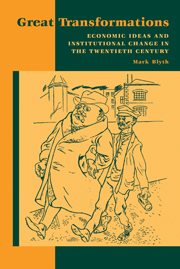Summary
My desire to write this book is perhaps best explained by a true story. My father was a butcher. He never took a course in economics. Yet sitting in his car just before the 1987 British election he told me that he would not vote Labour. I inquired why he would not. Because, said my father, “once they get elected, Labour will spend all this money on creating jobs, which is fair enough, but it never works. It just means prices go up. They'll try it again and again and prices will go up and up. Then they will have spent all this money and there will be none left for the schools and the hospitals, so they will have to borrow. But because there is inflation, it will cost more money to borrow, which means there will be less money for everyone else. This means we will all have to pay more on loans and such things, so people will have less money to spend. The less people spend, the more the economy slows down, and so there are fewer people in work. If the Tories get in again, they'll cut taxes, people will spend more, and there will be more jobs.”
My father had just regurgitated at least fifty years of contested economic thought in less than one minute flat. Buchanan, Friedman, Laffer, Nordhaus, and even Pigou had been deployed to diagnose the state of the British economy quicker than many a graduate student.
- Type
- Chapter
- Information
- Great TransformationsEconomic Ideas and Institutional Change in the Twentieth Century, pp. vii - xPublisher: Cambridge University PressPrint publication year: 2002



